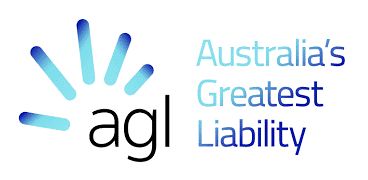In the case of Greenpeace v AGL Energy [2021] the Federal Court of Australia addressed copyright and trademark infringement issues arising from Greenpeace’s media campaign against AGL.
Greenpeace launched a campaign that employed a modified version of AGL’s logo and taglines criticising the company’s environmental impact. AGL contended that this usage infringed its copyright and trademark rights. The court’s ruling provided significant insights into the application of fair dealing exceptions for parody or satire under Copyright Law and the limitations of trademark infringement in cases involving criticism and activism.
Background
Greenpeace created a campaign that targeted AGL’s environmental practices, alleging that the company’s actions hindered Australia’s progress towards achieving net-zero emissions as per the Paris Climate Agreement. Greenpeace’s campaign featured a modified AGL logo, incorporating phrases such as: “Australia’s Greatest Liability”, “Still Australia’s Biggest Climate Polluter,” and “Generating Pollution for Generations”. AGL responded by initiating legal proceedings against Greenpeace, seeking declarations of infringement injunctions to stop the logo’s use.
Copyright Infringement
AGL Energy claimed that Greenpeace’s use of their modified logo constituted copyright infringement. The central legal question concerned whether Greenpeace’s logo use fell within the scope of fair dealing exceptions under sections 41 and 41A of the Copyright Act.
What does “fair dealing” mean?
Fair dealing is a legal term that permits the limited use of copyrighted material without the need for permission from or payments to the copyright owner. In this context, handling copyrighted material entails utilising the material in any manner restricted to the copyright holder. Fairness should be assessed impartially concerning the applicable purpose. Criteria that are relevant in evaluating the fairness of use involve whether the individual employing the material does so for profit and whether the copyright holder suffers financial losses due to the usage. Individuals or organisations can only invoke a fair dealing exception for their personal utilisation of copyrighted material.
Fair Dealing Exceptions
- Parody or satire Defence (Section 41A)
The Copyright Act permits fair dealing for parody or satire without copyright infringement. The Parody or Satire defence was introduced in 2006 to promote free speech. In his second reading speech to the House of Representatives, the Attorney-General said that the new exception would promote: “free speech and Australia’s fine tradition of satire by allowing our comedians and cartoonists to use copyrighted material for the purposes of parody or satire”. Further, the Minister for Justice and Customs told the Senate that the new exception would ensure “that Australia’s fine tradition of poking fun at itself and others will not be unnecessarily restricted”.
Justice Burley examined this section, emphasising that it intends to promote free speech through humourous parody or satire. For this defence to apply, two conditions must be met:
- that there be a “fair dealing” with the artistic work and
- that such dealing is for the purpose of parody or satire.
Justice Burley’s examination of Section 41A was pivotal. He assessed whether Greenpeace’s use of the modified logo met the conditions for fair dealing for parody or satire. This involved a nuanced analysis of the nature of Greenpeace’s campaign, considering factors such as proper attribution, non-commercial status, and the absence of reputational harm directly caused by the logo’s use. The court stressed the importance of objectively assessing how viewers familiar with both parties would perceive Greenpeace’s campaign. This meant considering whether the campaign engaged viewers in a satirical discussion on AGL’s environmental impact, even if the ultimate goal was to prompt change in AGL’s practices.
- Criticism or Review Defence (Section 41)
Justice Burley also examined Section 41’s fair dealing exception for criticism or review. He distinguished between materials that criticised AGL as a company and those that focused on the copyrighted work itself. This distinction was crucial in determining whether fair dealing applied. He ruled that certain materials like social media posts, protest posters and placards did not meet this exception because they criticised AGL as a company rather than the copyrighted work.
Trademark Infringement
AGL also asserted trademark infringement, arguing that Greenpeace’s campaign violated their registered trademark. The court dismissed this claim, stating that Greenpeace’s use was not substantially identical and would not be perceived as promoting goods or services. For a trademark infringement to be successful, the alleged infringer must use as a trademark a sign that is substantially identical with, or deceptively similar to, a registered trade mark concerning goods or services in respect of which the trademark is registered. Greenpeace submitted to the court that the use of the modified AGL logo was not trademark use. According to Greenpeace, the modified AGL logo was not substantially the same as the AGL trademark, and since Greenpeace is a charity, its use of the modified AGL logo did not constitute commercial use.
Broader Legal Context
AGL v Greenpeace [2021] serves as a significant legal precedent with far-reaching implications for protecting free speech, environmental activism, and the boundaries of intellectual property rights. It reaffirms that such exceptions can provide a robust defence for activists and advocacy groups, enabling them to employ creative and satirical means to draw attention to issues without violating copyright laws. This expansion of fair dealing principles can have broader implications for protecting political and social commentary. It reinforces the principle that satire and parody can be potent instruments of social change, provided they are carefully crafted and serve a legitimate public interest.

